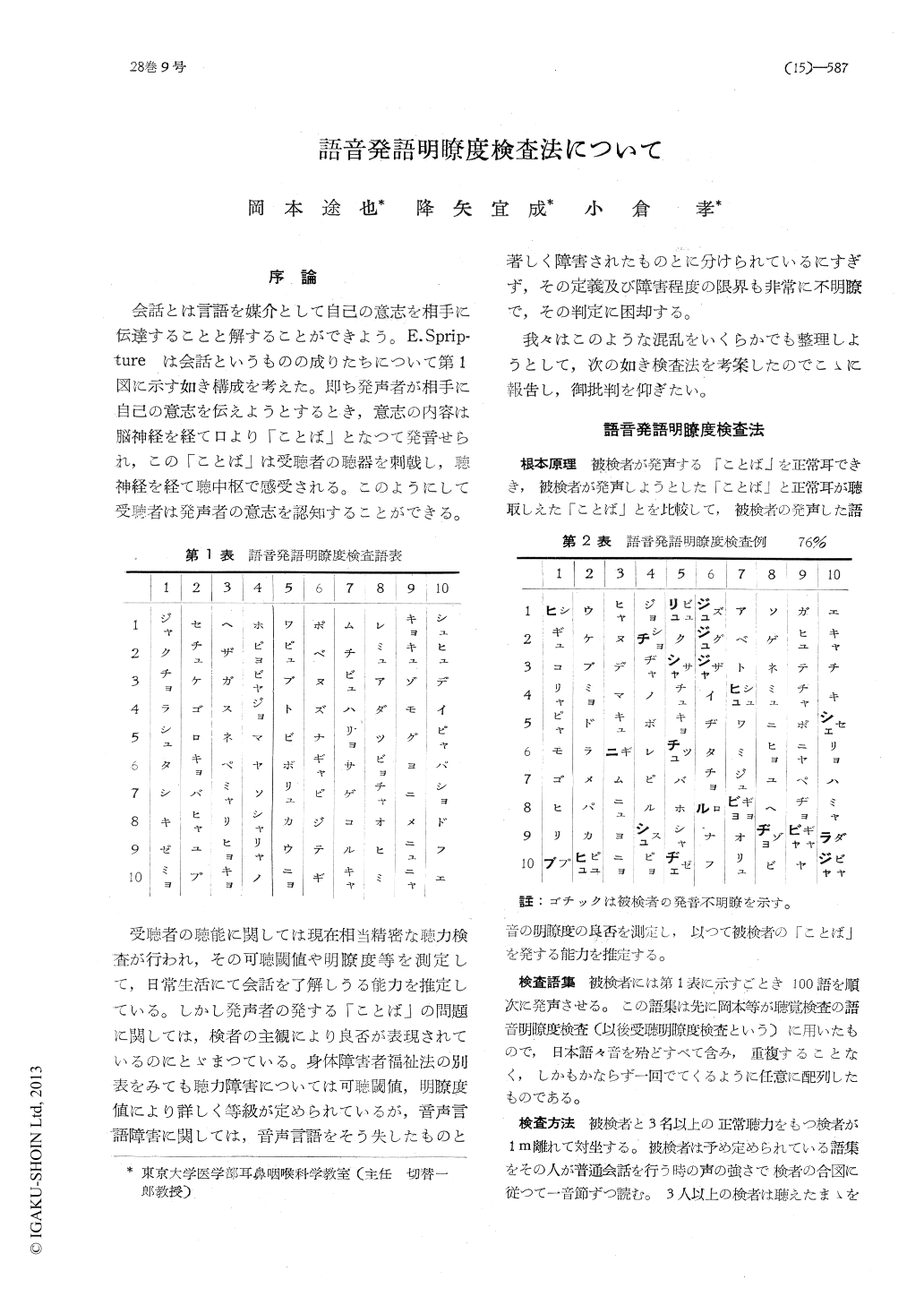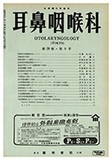- 有料閲覧
- 文献概要
- 1ページ目
序論
会話とは言語を媒介として自己の意志を相手に伝達することと解することができよう。E. Spriptureは会話というものの成りたちについて第1図に示す如き構成を考えた。即ち発声者が相手に自己の意志を伝えようとするとき,意志の内容は脳神経を経て口より「ことば」となつて発音せられ,この「ことば」は受聴者の聴器を刺戟し,聴神経を経て聴中枢で感受される。このようにして受聴者は発声者の意志を認知することができる。
受聴者の聴能に関しては現在相当精密な聴力検査が行われ,その可聴閾値や明瞭度等を測定して,日常生活にて会話を了解しうる能力を推定している。しかし発声者の発する「ことば」の問題に関しては,検者の主観により良否が表現されているのにとゞまつている。身体障害者福祉法の別表をみても聴力障害については可聴閾値,明瞭度値により詳しく等級が定められているが,音声言語障害に関しては,音声言語をそう失したものと著しく障害されたものとに分けられているにすぎず,その定義及び障害程度の限界も非常に不明瞭で,その判定に困却する。
Although at present, by means of tests measuring threshold and acuity, it is possible to make objective tests on acuity of speech hearing. But, the quality of the speech itself to be evaluated as either good or bad must be dependent on the judgement of the examiner. The authors, therefore, devise a method by which speech evaluation may be made objectively much in alignment with the test for acuity. The advantages and disadvantages of the method are dicussed: speech mechanism is considered. The present method affords a means by which the speech of the speech-defected may be evaluated.

Copyright © 1956, Igaku-Shoin Ltd. All rights reserved.


